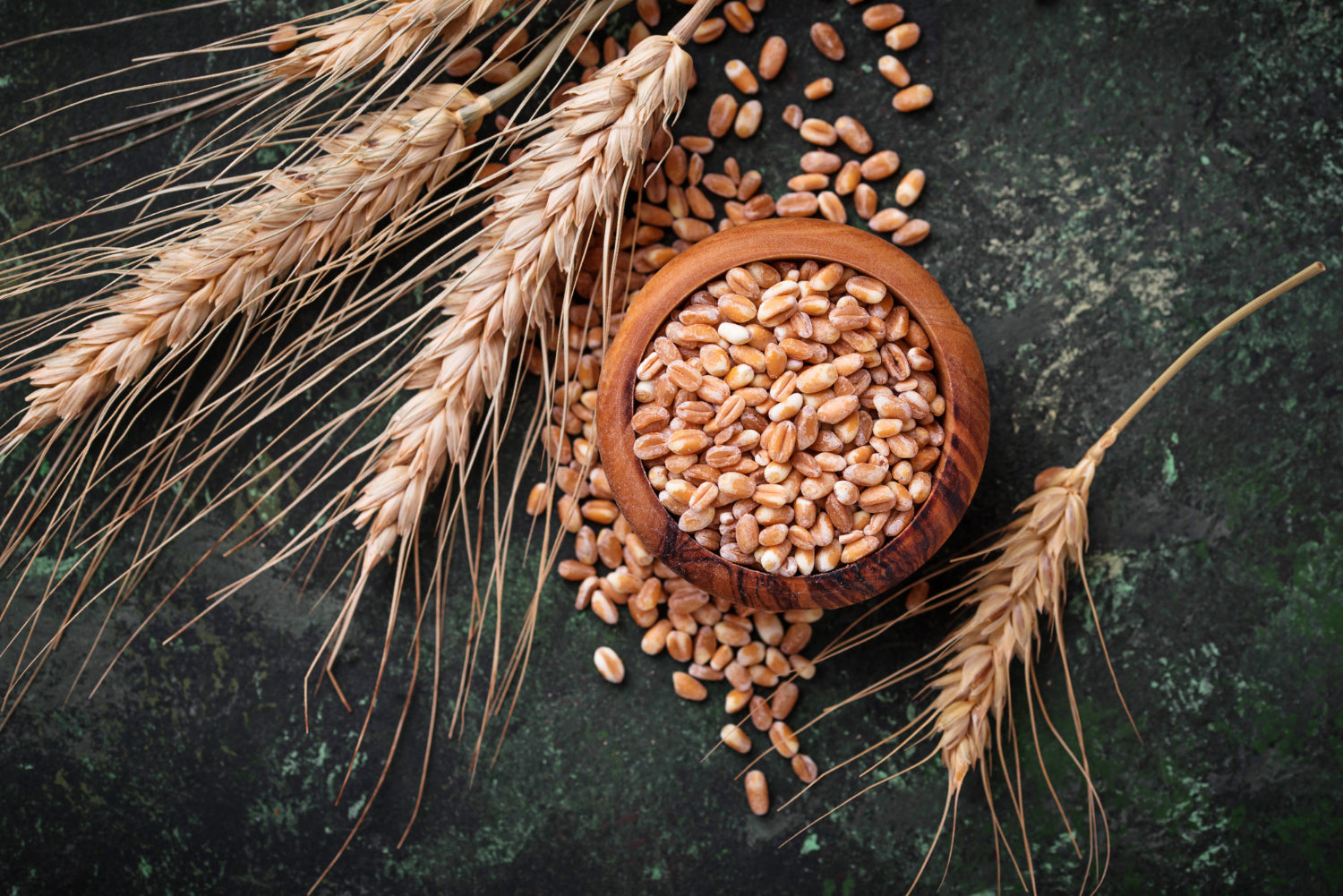
June 07, 2023 3 min read
Wheat berries are the whole, unprocessed grains of the wheat plant. They are packed with nutrients and have a delicious, nutty flavor that makes them a versatile ingredient in a variety of dishes. If you are looking for a healthy addition to your diet, here are some facts and benefits of wheat berries.
Wheat berries are the edible part of the wheat plant. They are the whole grain that is left after the husk has been removed. They are sold either whole or cracked and can be found in most health food stores and some grocery stores.

There are different types of wheat berries available, including hard red wheat berries, hard white wheat berries, and soft white wheat berries. Hard wheat berries are high in protein and gluten, making them suitable for making bread and pasta. Soft wheat berries are lower in protein and gluten, making them better for cakes and pastries.
Before cooking, wheat berries should be rinsed and soaked in water for several hours or overnight to reduce cooking time. Depending on the texture needed, they can be boiled in water or stock for 30 to 60 minutes. Once cooked, they can be used as a substitute for rice, quinoa, or other grains, as well as in salads, soups, and stews. It`s also a great option for breakfast.
It is highly useful that wheat berries have a long shelf life because they can be kept in a cold, dry environment for up to a year. When buying wheat berries, it is important to check the expiration date and ensure that they are free from any signs of mold or insects.

Wheat berries are a great source of fiber, which is necessary for a healthy digestive system and body in general. About 6 grams of fiber, or 20% of the daily required amount, can be found in one cup of cooked wheat berries. The fiber in wheat berries helps to keep you feeling full for longer and can help regulate blood sugar levels.
Wheat berries are rich in protein, iron, magnesium, and B vitamins, among other vital minerals. They also include antioxidants, which aid in defending your cells from oxidative stress brought on by free radicals. These vitamins and minerals are crucial for preserving good health and preventing chronic illnesses like cancer and heart disease.
While wheat berries are a type of wheat, they are still a gluten-free option. This is because they are the whole grain and have not been processed or refined like wheat flour. If you are sensitive to gluten or have celiac disease, wheat berries can be a great alternative to other grains.
In conclusion, wheat berries are a nutritious and versatile whole grain that can be a great addition to any diet. With their high fiber and nutrient content, as well as their gluten-free option, they offer a variety of health benefits.
❤ Try our USDA certified organic and Soft White Wheat Berries ❤
Other Wheat Berry Blogs:
Comments will be approved before showing up.

January 27, 2025 3 min read
Flaxseed, the tiny yet powerful superfood, is packed with nutrients that can support weight loss. From curbing hunger to stabilizing blood sugar, this guide dives into the science of how flaxseed can help you shed those extra pounds.

December 11, 2024 3 min read
Discover three quick and easy soup recipes featuring organic small red beans. From a classic vegetable soup to a creamy potato blend, these wholesome recipes are perfect for chilly days and busy weeknights. Packed with flavor and nutrition, these soups will warm your heart and soul this winter!

December 06, 2024 3 min read
This vibrant and nutritious Green Lentil Salad combines tender lentils with grilled chicken, fresh vegetables, and a zesty lemon dressing. Packed with protein, fiber, and essential vitamins, it’s the perfect healthy meal for any time of day.
© 2026 Be Still Farms- Real, Fine Organics.
Privacy | Terms | Refund Policy | Organic Certification
